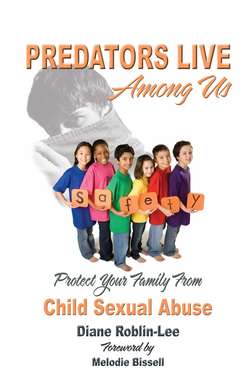Читать книгу Predators Live Among us - Diane Roblin Lee - Страница 15
На сайте Литреса книга снята с продажи.
Denial
ОглавлениеSo—if the costs are so high, why don’t we do more to get at the root of the problem?
People don’t want to talk about child sexual abuse, much less admit to being a victim or a molester. People don’t want to look too closely or they might find something horrible going on next door or even in their own homes. The problem is so rampant that, for many social workers, dealing with the subject means confronting their own childhood demons. They don’t want to stir their own emotional pots, bringing their buried painful, sometimes shameful memories to the surface.
The word “incest” is so distasteful that people want to distance themselves from it in every way—even in the development of sex abuse prevention programs, which are predominantly geared towards strangers. Author Julian Sher’s research into the findings of the CCRC (Crimes Against Children Research Centre, University of New Hampshire) revealed that between 70 and 90 percent of child sexual abuse is committed by persons known to the victim.
This societal denial is another factor contributing to inadequate funding for the development of programs geared to protecting kids. People in positions of intimacy with children, such as teachers, doctors and nurses, who have opportunities to check for signs of abuse are usually poorly trained in recognizing the more subtle signs.
According to Victor Vieth, director of the American Prosecutors Research Institute’s National Centre for Prosecution of Child Abuse, a 2004 survey of 2,240 judges who regularly handle child abuse cases, showed that barely 50 percent had had the proper training. Consequently, children who should be rescued continue to be either abused or at risk. He states:
“All the folks who advocate getting tough on crime and other social problems—burglaries, arsons, suicide, depression—need to start talking about addressing child abuse, because that’s where much of it starts.”
